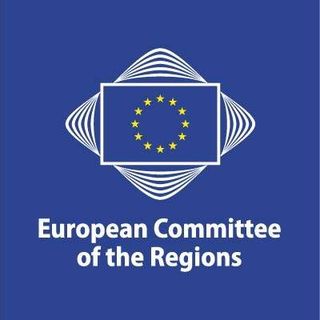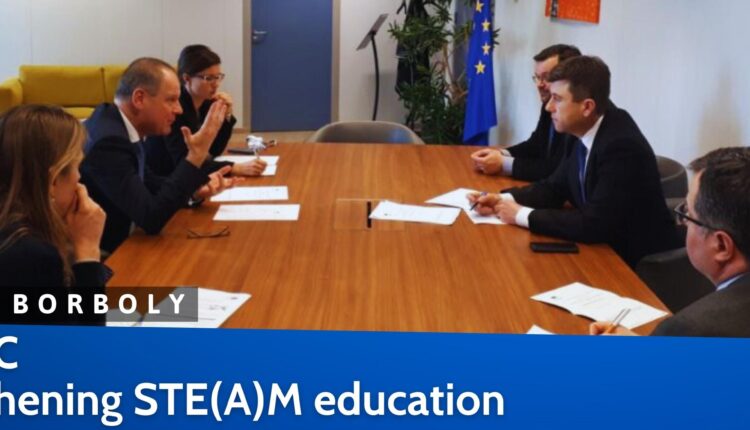Strengthening STE(A)M education in the EU
The opinion:
ü Contribute to addressing the challenges of supporting people to acquire appropriate STE(A)M skills and reduce the gaps in the labour market;
ü Promote a multi-fund approach and school infrastructure, curriculum development, training of teachers, training of trainers and innovation and piloting in the field of education in order to deliver STE(A)M, second and third language acquisition and eLiteracy;
ü Promote territorial and gender equity in accessing STE(A)M education and careers. Highlight the role of LRAs in finding new ways of thinking about the future of education, taking over new concepts and finding new financing sources for the soft and hard investments in order to support the change;
ü Ask the EU to provide more coordinated support with regard to the optimization of STE(A)M to Member States and LRAs, who hold the competence for education policies
he rapporteur has actively embarked in achieving the objectives of this own-initiative Opinion and constructed an intensive dialogue with the EU Institutions (European Commission, the Presidency of the Council of the EU, the European Parliament). The dynamics of these contacts helped promote the key political messages of the initiative and support the development of STE(A)M education at EU level.
Already on 23 May 2020, the Council adopted conclusions on young people and the future of work (8754/19). Employment has been recognised as one of the major challenges not only within the EU but also worldwide, in particular for young people. The increased use of digital technologies and growing demand for greater skills, a need for higher levels of education and training and new forms of employment are recognised as drivers for ‘the future of work’, as a general term describing the evolution of jobs in the medium-to-long term.
The following aspects are specifically related to and echoes proposals included in the CoR opinion (e.g. para 14 and 6 plus 21):
Advances in technology and innovation, as supported also by EU’s Digital Single Market and Research and Development initiatives, are expected to bring about an increased use of digital technology in the economy and make certain jobs obsolete, while employment opportunities in other economy areas can open up. In order to benefit from such transformations, all young Europeans, including those with fewer opportunities, must have access to inclusive and quality formal and non-formal education that will improve their full range of skills.
In the context of ensuring a solid cognitive foundation, promoting the formation of skills that foster the effective use and understanding of technology is a prerequisite in the future work setting. The skills should not only focus on mastering new technologies, but also on understanding how they can help influence society.
In the follow-up given to the CoR opinion, the European Commission agrees on the importance of the local and regional levels, giving the examples of such levels involvement in the work of the STEM Coalition and the STEM Alliance, as well as in numerous Erasmus and Horizon2020 projects. Providing due priority to supporting STEM-related initiatives at local and regional level is considered one of the priorities in the Commission’s work. To this end, the Commission already supports the STEM Coalition, which will further its mandate in 2019-2022 to cover STEAM (science, technology, engineering, arts and mathematics) education and share best practice for the establishment of national STEM strategies across Member States.
The Commission agrees with the Committee’s position and points out that the Erasmus+ programme finances forward-looking cooperation projects to achieve these objectives. The Commission will closely monitor alliances funded under the European Universities initiative, especially regional and civic universities, to ensure sharing of good practice in STEM (science, technology, engineering and mathematics) teaching as well as sharing of related course content (as requested in point 19 of the Opinion).
The European Commission has also launched Call for proposals of the Education, Audiovisual and Culture Executive Agency (EACEA) 36/2018, whereby under priority 4 – Promoting innovative and cross-disciplinary approaches to STE(A)M, several projects have been approved.
The rapporteur has also promoted the initiative in various fora:
• 26 September 2019: European Education Summit in Brussels focusing on the teaching profession under the title: “Teachers first: excellence and prestige for the European Education Area”. The rapporteur presented the key messages from this opinion as panellist in the session on “Teaching in rural areas: challenges and solutions to keep rural areas alive”, together with representatives from the European Commission and academia;
• 13 September 2019: debate on “Skills for the future: New ways of teaching and learning”, together with representatives from the European Commission, the Finnish Innovation Fund, and the European Training Foundation, at the Bureau Meeting in Turku (Finland);
• 20-21 April 2019: panel debate organised by CEDEFOP and the EESC during the Policy Learning Forum on “Upskilling pathways: a vision for the future”;
• 21 April 2019, conference organised by the Romanian Presidency of the Council of the EU on “Combining digital and entrepreneurial competences to support innovative education and training”;
• 6-7 April 2019: Conference on “Adult upskilling and reskilling – Balancing the labour market” organised by the Romanian Presidency of the Council of the EU in close cooperation with the European Commission.
The rapporteur also supported the organisation and contributed as key speaker to the conference “Sharing Inspiration” organised by T3 Europe at the CoR in March 2019. More than 100 policymakers, industry stakeholders, key decision makers and leading educators from 20 countries participated in the conference. In interactive sessions, they shared their viewpoints and experiences on successful STE(A)M education. Through presentations and deep dive sessions, the participants exchanged views on curriculum reform, educational mobility, innovative classroom practices, policy framework, regional outreach and the role of industry.
https://cor.europa.eu/en/our-work/Pages/OpinionTimeline.aspx?opId=CDR-6435-2018

